Recently, we asked the BuzzFeed Community what question they had about hair loss that they wanted a professional to answer. With many great questions asked, we reached out to Dr. Gary Linkov, MD who practices at City Facial Plastics. Dr. Linkov has also been open about his own journey with alopecia. Below he provides the answers to your most burning questions:
1. "What's the normal amount of hair to shed when brushing?"
Dr. Linkov: It’s normal to shed between 50 and 100 hairs a day.
2. "When should I start to take preventative measures or tell a doctor about excessive shedding?"
Dr. Linkov: As stated above, it’s normal to shed between 50 and 100 hairs a day. When the body sheds significantly more hairs every day, you have excessive hair shedding which is called telogen effluvium. While this is usually temporary hair loss caused by various triggers, it can accelerate and become permanent, especially if the underlying triggers are not addressed. If you are losing more than the number of hairs described above, you should definitely talk to a hair doctor to figure out the best preventative measures for you.
3. "Is there a research-supported way to increase follicle density?"
Dr. Linkov: Great question! It's important here to define the difference between medical and surgical treatments. Essentially, nearly all medical therapies for hair loss (particularly androgenic alopecia) are meant to increase hair follicle thickness and increase the terminal:villus ratio (create more mature hairs instead of the small fine ones). However, in order to increase follicle density, you often need to consider a hair transplant procedure, which can put hair in places where there no longer are any. But if there are still hairs present in the area and you are trying to simply improve fullness and thickness, then medical therapies can help, such as minoxidil, finasteride, low-level laser light, PRP, etc.
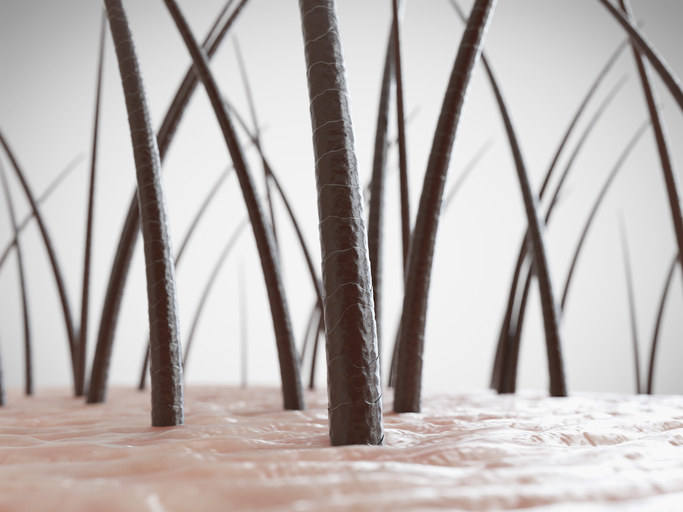
4. "Can pulling your hair into high ponytails pull back your hairline?"
Dr. Linkov: Yes! Tight hairstyles cause inflammation, which can lead to hair loss and ultimately cause a receding hairline. So try not to wear tight ponytails often and know that the pulling over time can lead to irreversible hair loss.
5. "Does stress impact hair growth? Does stress (acute or chronic) contribute to hair loss?"
Dr. Linkov: Yes! Stress has been shown to contribute to hair loss and to even lead to more gray hair! In telogen effluvium, significant stress pushes large numbers of hair follicles into a resting phase. Another hair loss condition thought to be at least in part due to stress is alopecia areata, which is when the body's immune system attacks the hair follicles. Stress can also cause hair to gray prematurely by affecting the stem cells that are responsible for regenerating hair pigment.
6. "Is there anything that truly works for female hair thinning? I lost a lot of hair after giving birth and so, so much of it did not come back."
Dr. Linkov: In situations like yours, involving excessive hair shedding after pregnancy, I often advise waiting a full year to regain normal fullness. Since it has been over a year for you, I would suggest a series of blood tests to determine if there is any underlying reason for the hair thinning. If that all comes back negative, then a discussion is had about medical therapies that can help restore some of the hair thinning.
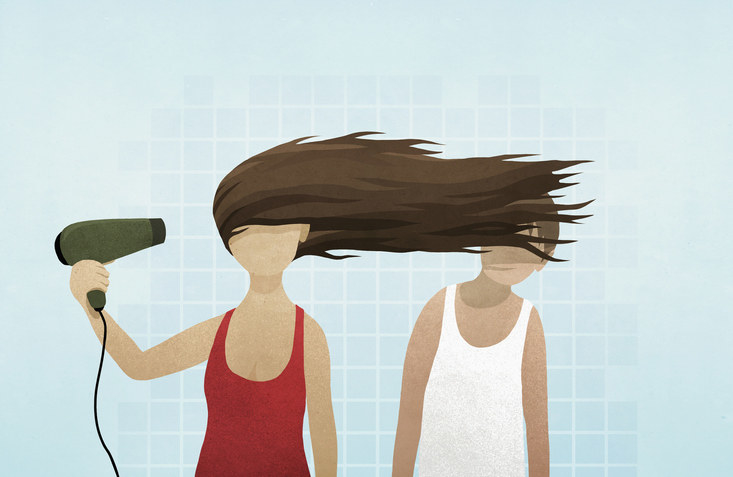
7. "I started using Rogaine to combat my male pattern baldness that I inherited from my dad and grandpa. My dermatologist said it will take a good two years to notice a difference. Is it true it will take that long?"
Dr. Linkov: Two years is on the longer end of things. I would say you can use it for 6–9 months and if you notice no difference, it may not be the best choice for you. Honestly, most of my patients do not get great benefit from topical minoxidil (Rogaine). I am moving more patients to oral minoxidil and my medication of choice for men is finasteride, which is generally much more effective.
8. "Curly girl here. I lose a terrifying amount of hair every wash. Like a fist full. But it doesn’t appear to be thinning, I don’t see balding spots. Because of the knots I get, the hair loss is alarming. Should I be worried about this as I get older? What precautions can I take?"
Dr. Linkov: It takes a significant amount of hair loss before you notice the actual thinning. With curly hair especially, you need to be careful of tight hairstyles that can cause inflammation of the hair follicles and can eventually lead to hair loss. One precaution would be to make sure the hairstyle you most often wear is relaxed and not pulling on the hair. In the early period of hair loss and inflammation, you can generally reverse the loss if the underlying cause is remedied. Later on, it can turn into a scarring type of condition that is much more difficult to treat.
9. "My sister has PCOS and loses so much hair. She's only 19 and already has bald spots on her head. The doctor gave her a foam to apply and she uses castor oil, but they don't do anything. What can she do?"
Dr. Linkov: Thinning hair due to the effects of male hormones (androgens) is called androgenic alopecia and is often seen in women with polycystic ovary syndrome (PCOS). Other causes may be hormonal changes due to a reduction of estrogen levels, thyroid disorders, anemia, nutritional deficiencies, medical illnesses, certain drugs, or infections. The doctor likely prescribed topical minoxidil based on your description, which is one type of medical therapy. Other options to consider are oral contraceptives, spironolactone, platelet-rich plasma, low-level laser light therapy, and biotin-based vitamins such as Viviscal.
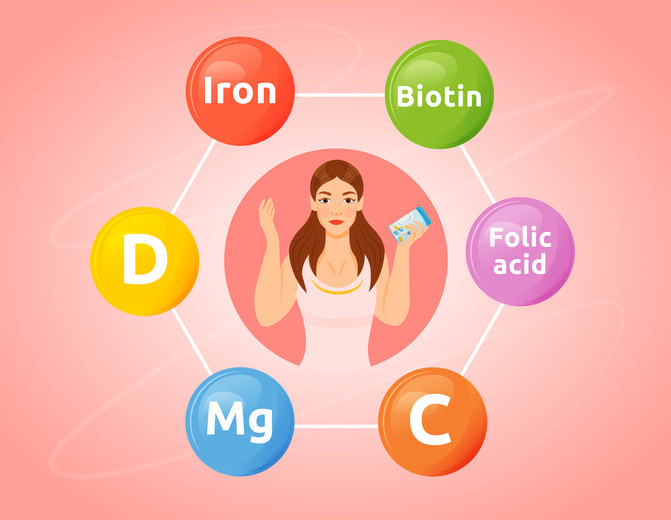
10. "What do you recommend for PCOS and Hashimoto’s hair loss? What about hair loss from chemotherapy?"
Dr. Linkov: PCOS and Hashimoto's hair loss require the help of endocrinologists to best control the underlying hormonal imbalances that are causing the hair loss in the first place. Chemotherapy hair loss is usually a self-limited problem that corrects itself once the chemotherapy is complete. It may take several weeks after treatment for your hair to recover and begin growing again. When your hair starts to grow back, it will probably be slightly different from the hair you lost, but the difference is usually temporary.
11. "I lost a lot of weight (about 130 pounds over a year and a half using lifestyle changes, nothing drastic). I've always had very fine hair and always wanted more hair. By the time I reached stable weight, I had lost a lot of hair. I seem to be in a cycle of pretty significant loss with some regrowth in winter. Is this more likely to be seasonal or a cycle based on the timing of my original weight loss? Is it likely to be treatable?"
Dr. Linkov: Significant weight loss can definitely cause hair loss. Telogen effluvium is the cause of hair loss in people who are losing weight at a fairly rapid pace. The hair cycle might be corresponding to seasons for you for a variety of reasons, potentially even the effects of the sun, but it is unlikely due to the weight loss. Medical therapies such as minoxidil, biotin-based vitamins, low-level laser light, or platelet-rich plasma might help strengthen your hair.
12. "I have fine hair. When I run my fingers through it, a lot of it falls out. I don’t look like I’m going bald, but I seem to be loosing a lot more hair than is normal for someone who is only 17. Any ideas why?"
Dr. Linkov: The most likely reason is androgenic alopecia, which is the most common type of hair loss in men and women. This is a hereditary type of hair loss and usually progresses and can start as early as late teenage years. Many people lose up to 50% of their hair before they start to notice the thinning!
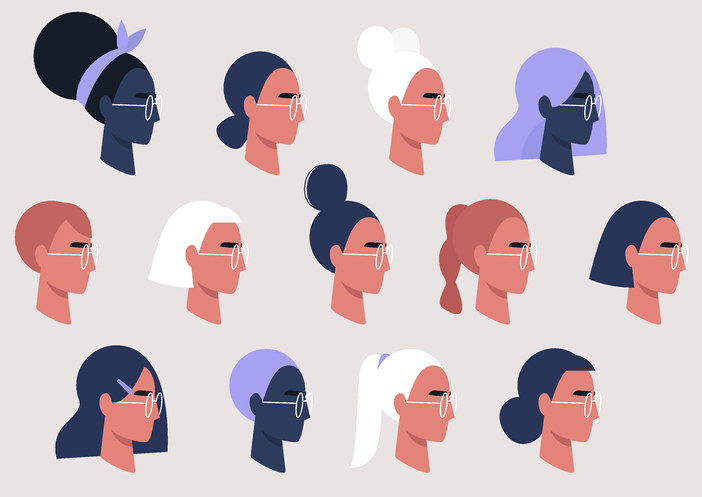
13. "I used to pull out hair as a teen (trichotillomania) and there's a tiny bald spot on my head that I think is coming from there. Is that possible? Could there be other effects from excessive pulling out like thinner hair or being more prone to hair loss?"
Dr. Linkov: Thanks for sharing your story! Trichotillomania, for those who are unfamiliar, is an irresistible urge to pull out hair from your scalp, eyebrows or other areas of your body. Hair pulling can be a way of dealing with negative or uncomfortable feelings, such as stress, tension, loneliness, boredom, or frustration. Pulling out hair can definitely lead to bald spots, some of which may not recover. Sometimes, a hair transplant is considered for individuals with permanent bald areas only if their trichotillomania is under excellent control, like yours is now.
14. "Can anything be done to help reduce eyebrow hair loss? I have suffered from alopecia since I was 13 and every time I look in the mirror, I try not to cry."
Dr. Linkov: Sorry to hear about the eyebrow loss and the emotional impact it's having on you! There are different conditions that can cause the eyebrow hairs to fall out. Assuming your loss is chronic and stable, and that you do not have active inflammation in the area, you might consider an eyebrow hair transplant, which is a great option for many with eyebrow hair loss. The hair is taken from the back of the scalp and carefully placed into the eyebrows with proper angulation, density, and direction.
15. "I had a really bad case of COVID in January. I was hospitalized, then spent time recovering for over six weeks. Now my hair is starting to fall out. Safe to assume that this is ANOTHER lovely post-COVID problem?"
Dr. Linkov: Glad to hear you're doing better! But sucks about the hair loss. Fever is a common symptom of COVID-19. A few months after having a high fever or recovering from an illness, many people see noticeable hair shedding, called telogen effluvium. This hair shedding can last for six to nine months before it stops. Most people then see their hair start to look normal again and stop shedding.
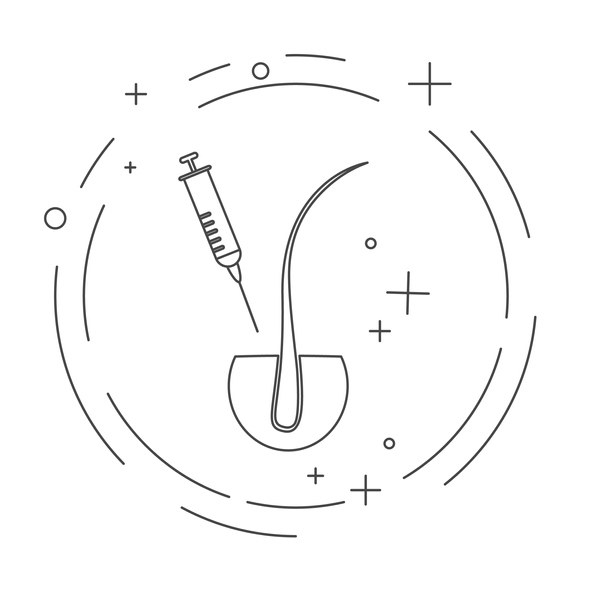
16. "My mom was diagnosed with Triple Positive Breast Cancer. It's one of the most aggressive kind out there. She survived and is 10 years out now, but she lost her hair to the chemo. Now my mother is very self-conscious about her thin hair and how you can see her scalp. Is there anything we can do to thicken her hair at all?"
Dr. Linkov: Sorry to hear about your mom's illness but glad she's doing better now. There are different options for globally thinned hair. Medical therapies can be attempted such as minoxidil, finasteride, low-level laser light, or platelet-rich plasma. If that does not do enough, then I would consider camouflaging techniques such as topical fibers or scalp micropigmentation, which is like microblading but for the scalp. A hair transplant is less likely to be beneficial in global thinning but could be helpful if the back of the head is still dense.
17. "Does birth control change your hair? I've been on the Depo shot for almost five years now and I feel like I'm constantly losing hair."
Dr. Linkov: The manufacturer of Depo-Provera reports that between 1–5% of women who receive the injections experience hair loss. One study found that among New York City adolescents, 10% experienced hair loss while using Depo. Usually, stopping the shot will reverse the hair loss. But you would need to talk to your doctor about an alternative contraceptive strategy.
Want more articles like this? Be sure to follow BuzzFeed Community!
Note: Submissions have been edited for length/clarity.
